Kasahun
Beles Sugar Development Project, Ethiopia
“I farm my uncle’s land in Guble because the land I got as compensation when the Sugar Project took my old one, it is too far, too little – only 3 qada (0.75 hectare) – and it is not fertile. I was told that I would have get 1 hectare. My previous land, in Jawi, that I inherited from my father was only 2.5 kada. But it was very fertile and the yield was so good. In Guble the weather is too hot: the land I got as replacement is not comparable with what was taken by the Sugar Scheme. And it is too far. You cannot walk there: it takes six hours by car! So I am obliged to sharecrop on my uncle’s land. I get one third of the total production. Annually, I get two quintals of gobe. Only that.”
“I am not happy to stay there in Guble and to leave my older father here in our permanent house. I live in Guble most of the time, from May to February. I stay in my permanent house only for 2 months. I built a house with a grass roof in my uncle’s compound. My wife and children are living there with me. My children also go to school there. When me and my wife live in our permanent house, my children remain with my uncle’s family, since they attend school there.”
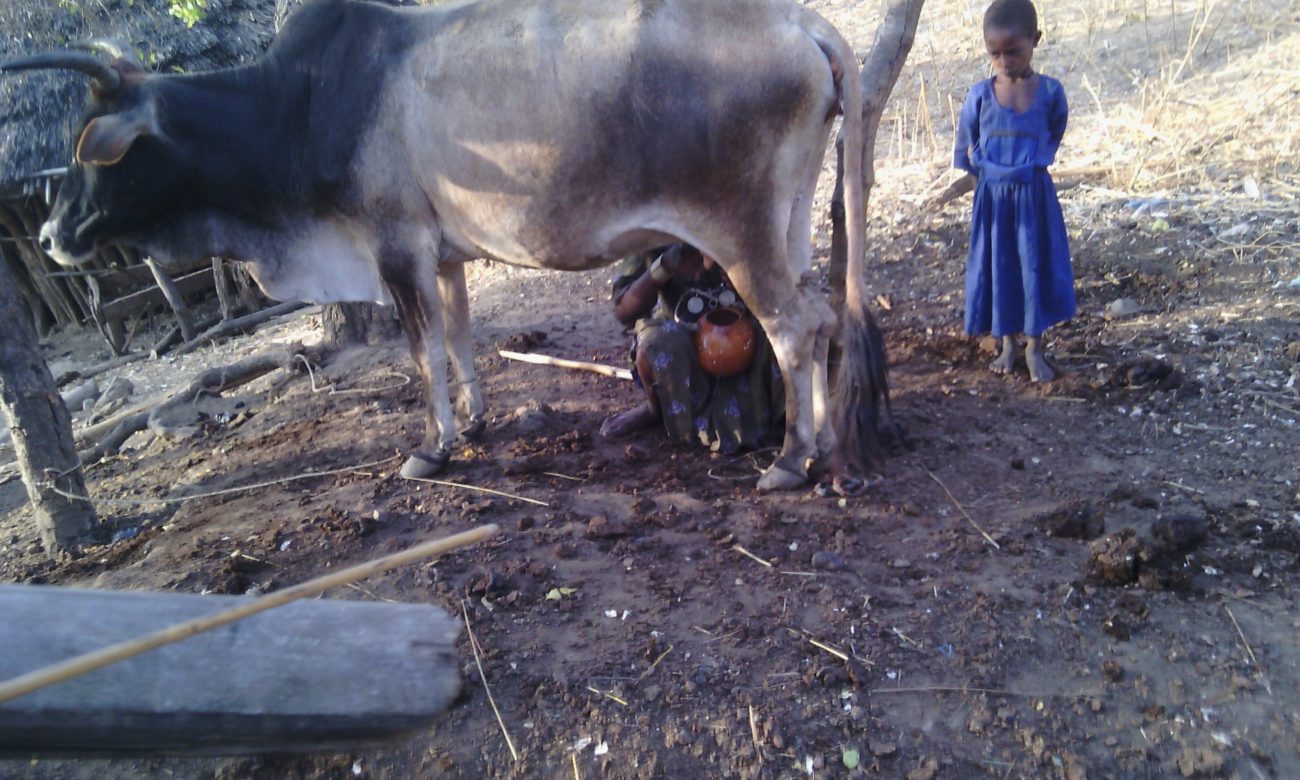
“The new settlement area is close to the Sugar Scheme. If our cattle enter in the sugar plantation we can be taken to jail. Before the Sugar Scheme the cattle could graze anywhere. My father, who lives is the same compound has two cows; I have one cow and one calf. Since there is shortage of grass and the cattle cannot enter the sugar plantation, I have taken these cows to the area where I farm, in Guble. We rotate with five other people, to look after our cattle.
In this picture my wife is milking the cow. Usually, if I am around I am the one who milks the cow. Here you can see the difference between rearing cows in Jawi, before displacement, and in the new settlement. Now we get less milk because there is a shortage of grass. In my previous place, people were selling milk and dairy products. Guble is far from the town, so we can buy food there. We have to travel to Jawi. In Guble there is no health care facility. Whenever people get sick, they have to be carried to Jawi to be treated. But in the past there were people who died beacuse of lack of medical treatment.”
Due to lack of money I had to sell two young cows. Another died because of eating grass that is too dusty. Many livestock has died due to the dust made by the many trucks working in the Sugar Scheme. Now I use the oxen of my uncle. My uncle is the one who provides for the agricultural inputs. I use only my labour. Because of this my share is only half of the production. If I had oxen, my share would be two third.”
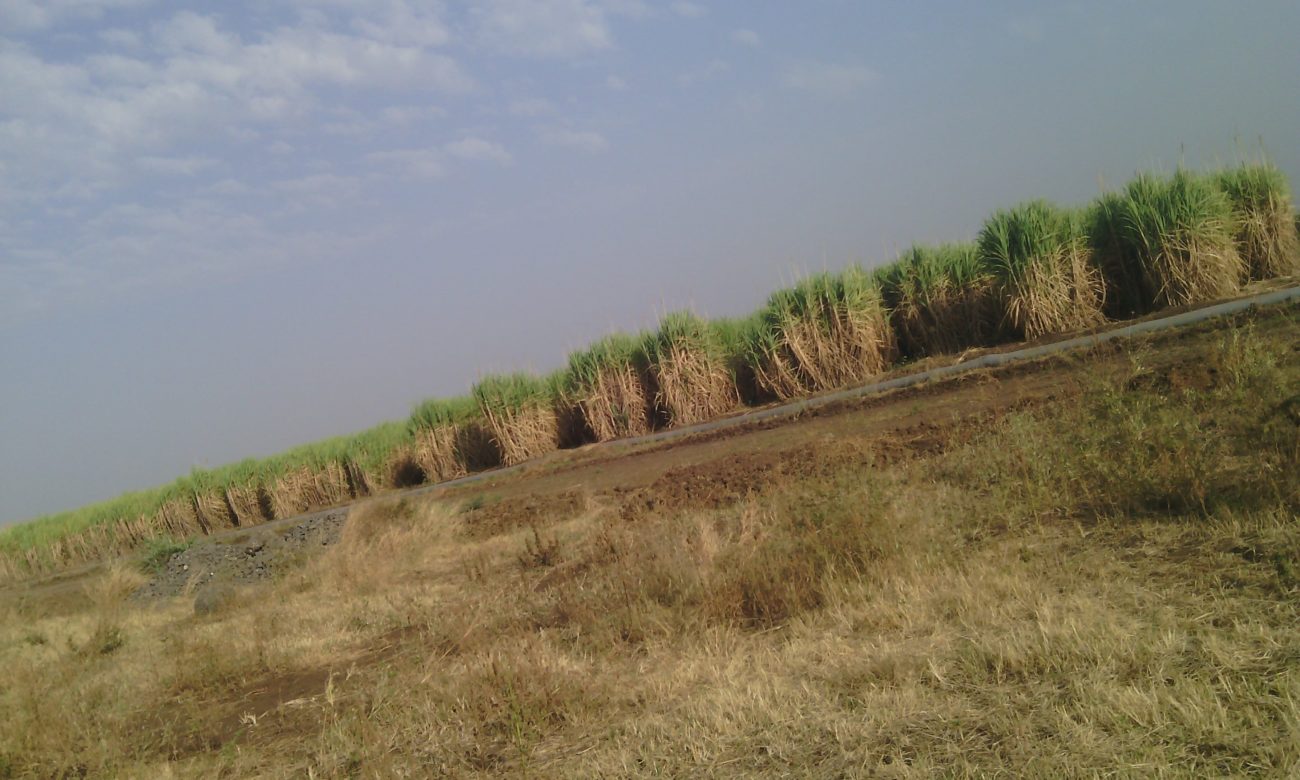
“I used to work in the Sugar Project during the construction of the canal. I have been also involved in planting the sugar cane. I also worked in road construction. The payment depends on the type of work: for the construction of canal I was paid 1, 200 birr per month, for planting sugar cane 700 birr and for road construction 960 birr. After working for three years I was told that there was no other job for me. That’s why I moved to Guble. But I would rather prefer to work in the Sugar Project.
I think I did not get a job because there are too many people looking for a job in the Sugar Project. There are many people coming from other areas beacuse they have heard there there are job opportunities with the Sugar Project. There are many women, because the men have also the option to farm the land in other areas like Guble, but women cannot travel too far. They initially said that indigenous people had the priority to work in the Sugar project. But I did not get the opportunity because I am not educated. My wife also worked in the scheme for one year. She was getting a monthly salary of 900 birr. When her job ended, we moved to Guble.
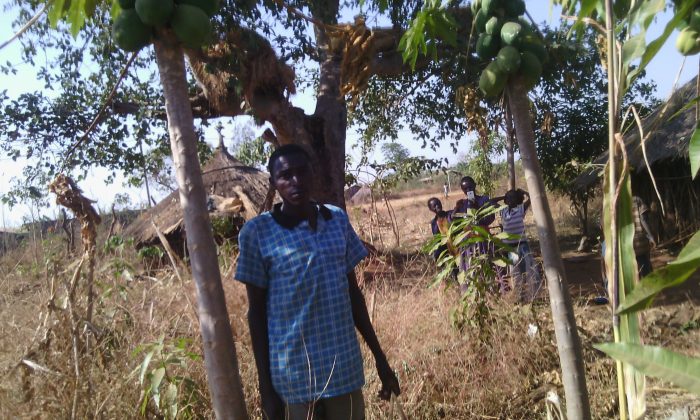
This is my father compound, where there is also my house. There is also papaya tree, but since I am away most of the time, my papaya trees are getting dry. The weather here is nice. I like to live here but there is no work. All my father’s relatives leave in this area, close to each other. We have a good network, we drink coffee together. But I had to move to Guble beacuse of work. Thanks to the help of my uncle I can live with my wife and children there. We brought some of our staff there, and some was left here. My uncle helped me a lot.
How does Belaynesh, Kasahun’s wife, cope with the new situation?
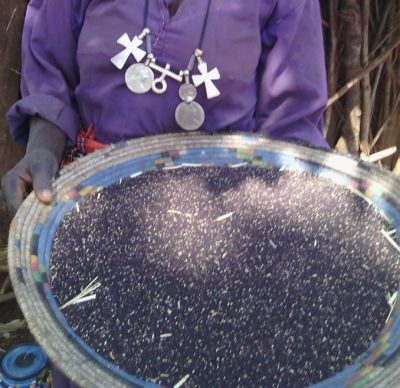
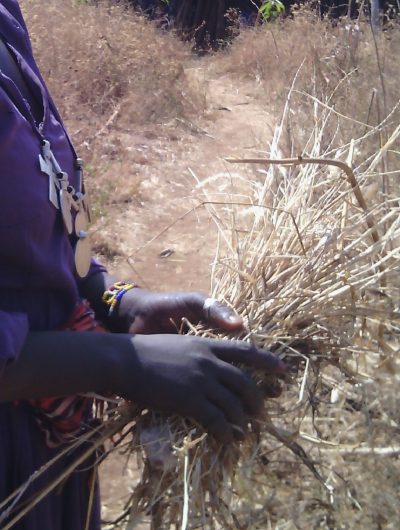
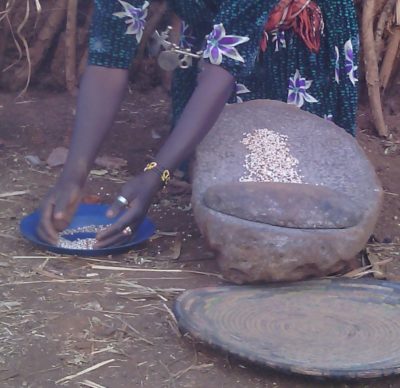
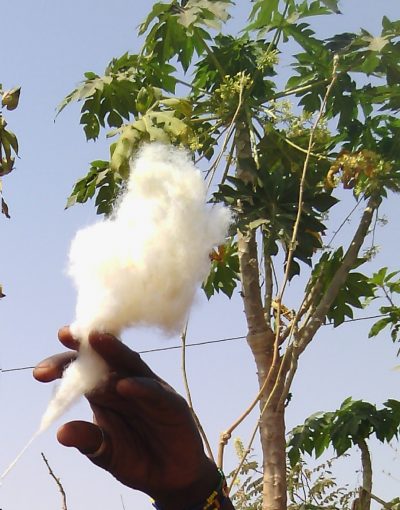
“I have sorghum in my hands that reminds me the previous life when my family and I used to produce surplus of sorghum. We used it for injera. We had a big land and good harvest every season. Now we have lost it. We don’t harvest this sorghum any more. We have to buy it on the market, because we don’t have enough fertile land to produce it. We have lost our farm land and the new land we got is very remote and less fertile.
The only benefit we got from the Sugar project is when I was hired as daily labourer. My mother and my sister used to work in the project too. Many other young women get job in the Sugar Project. But it is a hard job. In the picture I wanted to show that we cut the grass and clear the land with bare hands. I got 40 birr per day for this job. Men and women do the same job and are paid equally. Now there is less work to do, only digging holes, which is a bit difficult for women. So mostly men are doing this job, for 1000-1200 birr.
The other photo is about women’s work burden at home. Here I am grinding mill manually bending my knee next to the ground. It used to be a very hard work that every woman is expected to do. First you break the cereal into pieces. Second, you crushed all the pieces. Third, you make it as this as flour, so that it is ready for baking. This might take one or two entire days. I had to do it for each cereal at different time. Now we are happy beacuse there is a grinding mill machine nearby. The owner of the machine is our relative, he has been resettled in this area like us. We pay only 40birr per 100 kilos: it is a fair price when compared to the hard labour we spent in the past.
The final picture reminds me that we used to raise a lot of cotton. To harvest it we had to call the wonfel (a traditional social system to share labour).Women had to harvest he cotton and prepare it for weaving, while me were making beehives. We were selling raw cotton at the market, or exchaning it with grain or beas. Altough in the new compund there is a cotton plant too, it can’t be used for sell because it is too small to produce a good amount of fibre. Although I could prepare the raw-cotton, I can’t find good weaver with fair price. Here in town it is not common to wear traditional dresses manually weaved. That’s why this raw cotton can’t be marketable here. In the past we used to waive the raw cotton and we made beautiful dresses. Now we buy our clothes from the market: it is very expensive when compared to the traditionally made dresses. I learned this skill from my mother who has the tools to make it and has good skill. She loved making cotton dresses. Now, she has stopped it because there is no demand for that”.

